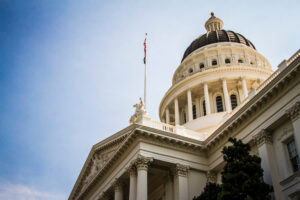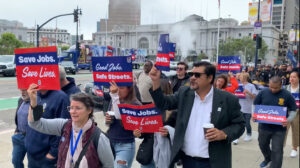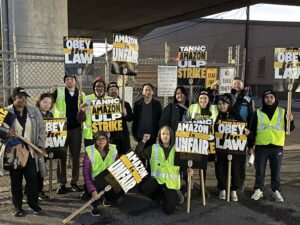Governor signs bills to protect California workers
December 17, 2021Governor Newsom signed several bills that will provide greater protections for California workers. Here are some of the most noteworthy:
Employers subject to imprisonment for intentional wage theft
AB 1003 makes intentional theft of wages, including gratuities, punishable as grand theft. An employer commits intentional wage theft by use of fraud or while knowingly paying less than minimum wage, not paying workers overtime, not allowing workers to take meal and rest breaks, requiring off-the-clock work, or taking workers’ tips. Grand theft is established if the amount of wage theft in any consecutive 12-month period is greater than $950 from any one employee, or $2,350 in the aggregate from 2 or more employees. Independent contractors are covered by this law.
Grand theft is punishable either as a misdemeanor or felony by imprisonment in county jail. The bill specifically authorizes wages, gratuities, benefits, or other compensation to be recovered as restitution in accordance with existing provisions of law, in addition to imprisonment.
Continuation of health insurance for striking public-sector workers
AB 237 makes it an unfair labor practice for a public employer in California to stop providing or paying for health insurance for striking workers and their dependents. For purposes of health care or other medical coverage, the bill requires employees participating in an “authorized strike” to be treated as if they are working for the duration of the strike. An “authorized strike” is defined as a strike sanctioned by the central labor council or the membership of a union representing the striking workers, or one that is engaged in by unrepresented workers.
The bill also makes it an unfair practice for a public employer to fail to collect and remit the striking workers’ contributions to their health care or other medical coverage. The Public Employment Relations Board (PERB) has jurisdiction to enforce these provisions.
In passing this bill, the legislature noted that “employers have previously threatened to or actually suspended their health care insurance contributions for striking employees,” recognized that “even a temporary lapse of health insurance coverage can have ripple effects on working families, their surrounding communities, and public health,” and deemed it “a matter of statewide concern that access to health and other medical care continues and that employers do not suspend coverage or their contributions towards premiums for workers or their dependent family members during a strike.”
Non-Disparagement agreement ban
SB 331 makes it an unlawful employment practice for an employer or former employer to prevent disclosure of information about unlawful acts in the workplace or to require employees or former employees to sign a non-disparagement agreement as a condition of employment or term of separation. The bill does not prohibit the inclusion of a general release or waiver of all claims in a separation agreement if the release is otherwise lawful and valid. This bill does not apply to a negotiated settlement agreement that resolves an underlying claim already filed by an employee in court, before an administrative agency, in an alternative dispute resolution forum, or an employer’s internal complaint process.





